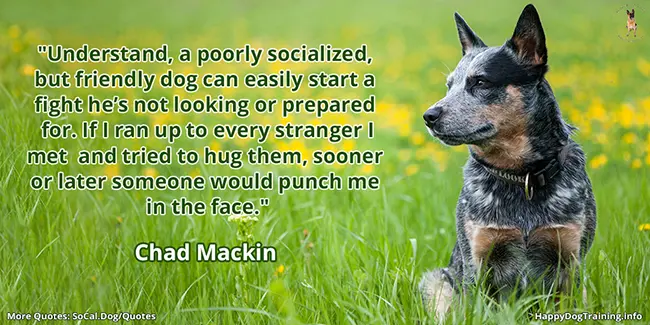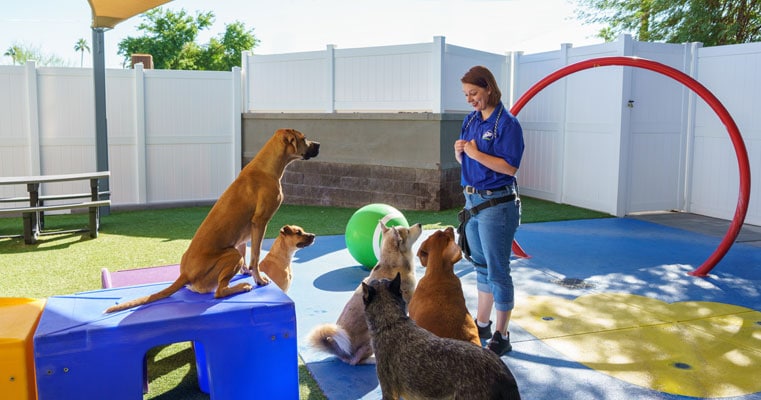Why Dog Training Near Me is Essential for Your Canine Buddy
Why Dog Training Near Me is Essential for Your Canine Buddy
Blog Article
Unlock Your Canine's Possible: Proven Pet Training Techniques for Success
Reliable dog training is a nuanced process that pivots on understanding canine behavior and using clinically backed techniques. By integrating favorable reinforcement, establishing clear commands, and focusing on socialization, canine owners can cultivate an effective partnership with their pets.
Understanding Canine Habits
Comprehending pet dog behavior is crucial for effective training and promoting a favorable connection in between pet dogs and their proprietors. An extensive understanding of canine body language, articulations, and social interactions is vital for identifying their feelings and requirements. Canines connect mainly with non-verbal cues; for instance, a wagging tail might show excitement, while pinned ears can signify anxiety or submission.

Additionally, ecological variables play a significant role fit a dog's actions. Adjustments in regular, brand-new surroundings, or the existence of unknown individuals can result in tension or anxiety in dogs. Identifying these triggers makes it possible for proprietors to reduce unfavorable responses and create proper training methods.
Ultimately, a deep understanding of canine behavior lays the foundation for successful training techniques, enhancing both actions and the total bond in between the pet and its proprietor. dog training charlotte nc. This knowledge is indispensable for fostering a well-adjusted, happy canine buddy
Positive Support Techniques
Efficient training depends greatly on positive reinforcement methods, which have been shown to generate substantial cause shaping preferred actions in canines. This approach includes compensating a dog for displaying certain actions, therefore boosting the probability that these habits will certainly be repeated. Incentives can take numerous kinds, consisting of deals with, appreciation, toys, or playtime, relying on what motivates the private pet dog.

It is crucial to slowly phase out rewards as the dog learns the habits, transitioning to periodic reinforcement. This strategy keeps the actions gradually while avoiding dependence on consistent benefits. By concentrating on favorable support, instructors can grow a relying on partnership with their dogs, advertising a participating and healthy and balanced training setting that enhances total obedience and efficiency.
Developing Consistent Commands
A fundamental aspect of successful pet dog training is the facility of constant commands. Consistency in commands is important for efficient communication between the pet and the fitness instructor. When commands are consistent, dogs discover to associate specific words with desired actions, which speeds up the training procedure and enhances understanding.
To develop constant commands, it is vital that all family participants use the same terms and gestures. For instance, if one individual makes use of "sit" while one more says "take a seat," it can create complication for the dog. Select clear, distinctive words for commands and make sure every person associated with the dog's training follows these selections.
In addition, rep is vital. Strengthen commands with regular practice, making sure that the dog obtains adequate chances to react appropriately. When a dog efficiently complies with a command, instant positive support needs to comply with. This can be in the form of treats, praise, or playtime, strengthening the connection in between the command and the action.
Lastly, be person. Establishing constant commands takes some time and effort. With devotion and clearness, you will certainly aid your pet dog develop a solid understanding of assumptions, ultimately leading to a well-behaved buddy.
Socializing and Exposure
Mingling a canine is crucial for cultivating a positive and well-adjusted friend. This procedure includes exposing your pet dog to a variety of environments, individuals, hop over to here and various other animals to develop their social skills and adaptability. Early socializing, ideally in between the ages of three to fourteen weeks, is crucial, as it prepares for a canine's future behavior.
Throughout socializing, objective to offer positive experiences in different settings, such as parks, active roads, and homes great site with various other family pets. Introduce your canine to numerous stimuli, including noises, sights, and smells, making certain that each encounter is gratifying. This exposure helps minimize concern and anxiousness, leading the way for a more durable canine.
Involving in regulated group play sessions with other dogs can additionally boost social abilities, instructing your family pet suitable communications and boundaries. Prioritizing socialization will substantially contribute to your canine's overall joy and habits throughout their life.
Overcoming Common Training Obstacles

An additional constant problem is distraction. Canines might have a hard time to concentrate in busy or unfamiliar settings. Gradually desensitize your canine to disturbances by starting training in a silent atmosphere and slowly presenting even more stimuli as they become competent (dog training near me). Positive support techniques, such as treats and praise, can maintain motivation and focus.
Additionally, behavior problems like leaping or too much barking can become aggravating. Address these by educating alternate actions, such as sitting calmly when welcoming guests. Uniformity and perseverance are critical; reinforce preferred habits regularly and avoid abuse, which can result in complication.
Last but not least, recognize that each pet is distinct, and training timelines may vary. Dressmaker your approach to your pet's specific requirements, and look for specialist support if needed. With perseverance and the best techniques, getting rid of these obstacles can bring about a trained, delighted canine companion.
Final Thought
Finally, unlocking a pet's prospective necessitates a detailed method that includes an understanding of canine actions, the application of positive reinforcement strategies, and the establishment of regular right here commands. Early socializing and direct exposure to diverse atmospheres further enhance a canine's versatility and self-confidence. By resolving typical training obstacles with customized approaches and patience, a unified and cooperative connection in between pet and handler can be promoted, inevitably resulting in a mannerly companion efficient in thriving in various circumstances.
Effective dog training is a nuanced process that hinges on recognizing canine habits and employing medically backed strategies.Recognizing canine actions is crucial for reliable training and fostering a positive connection between pet dogs and their owners.Reliable training counts heavily on positive support methods, which have been revealed to produce considerable results in shaping desired behaviors in pet dogs. When commands are uniform, dogs discover to associate particular words with wanted habits, which speeds up the training procedure and enhances understanding.
In conclusion, unlocking a canine's prospective requires a comprehensive approach that integrates an understanding of canine actions, the application of positive support techniques, and the facility of constant commands.
Report this page